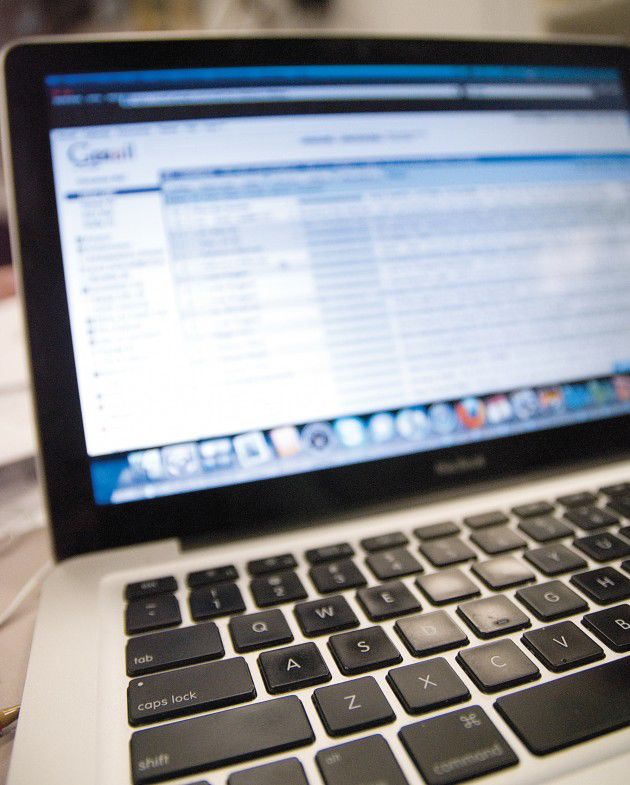University to adopt Gmail student accounts for fall 2010
February 3, 2010
Villanova will join Notre Dame, Vanderbilt, Northwestern and countless other universities in offering Gmail accounts to students by fall 2010, according to Chief Information Officer Stephen Fugale. The accounts will remain Villanova-based, but unlike the current accounts with the Microsoft Exchange service, they will be free, lifelong e-mail accounts for as long as Google offers Gmail.
With Gmail, students will have greater e-mail storage as well as access to Google calendars and all of the most up-to-date Google Apps.
However, there is some functionality that UNIT plans to retain, such as the on-campus address book and the distribution lists. In order to do that, UNIT is currently in the process of replicating the distribution lists.
Other key considerations were the University’s desire to retain the villanova.edu domain name and to continue to control the initial usernames and passwords in order to sync them with banner IDs and the myNOVA portal – desires that Google accounts will fulfill.
“We build hundreds if not thousands of distribution lists by year, major, class and all combinations in between,” Fugale said. “So we need to reconstruct that capability. We actually have started that work so we will be doing that between now and the summer.”
The switchover was primarily student-driven, according to Fugale. Organizational Research and Planning, a group on campus, conducted focus groups, which consisted of representatives from each college and class.
Additionally, SGA arranged a town hall meeting with 100 students and students in a business course conducted a survey, all of which asked for feedback on the needs and desires of the students.
“In virtually every venue, students indicated the preference for using Gmail,” Fugale said. “It became clear mailbox storage and e-mail for life were big requirements.”
On the current platform, which was adopted in May 2007, alumni retained their Villanova e-mail addresses for one year after graduation, after which e-mails sent to those accounts were automatically sent back to the senders.
With the new Gmail accounts, students will pay nothing, and there will not be any advertising associated with it, though upon graduation each student becomes a Google customer, according to Fugale.
In addition to the focus groups, UNIT monitored how students were using the current system in terms of how often they accessed their accounts and how many students were forwarding their e-mails.
Over the past year, 1,800 students forwarded their e-mails, with a lion’s share being routed to Gmail, according to Fugale.
“I forwarded my Villanova e-mail to my Gmail account, but I couldn’t receive my e-mails instantaneously,” junior Lauren Vallone said. “Gmail checks the college e-mail account automatically every hour or so and updates the inbox if we receive new e-mails, but a lot of the time I had to force it to check for new mail by going into the accounts tab.”
The needs of the students, the explosion of Google service availability and the rush of peer schools moving to Gmail reinforced the decision to switch to it, according to Fugale.
The majority of campuses outsourcing student e-mail have already opted for Google, according to the 2009 Campus Computing Project survey.
Of the 500 colleges surveyed that use hosted e-mail, 59 percent uses Google as its provider.
“The intent is that we will have the ability to offer graduating seniors the option of subscribing, but our main focus will be on preparing this for the incoming freshman class and then migrating all the data for the existing students over the summer,” said Fugale, who added that UNIT is currently in the process of planning this out.
Ultimately, UNIT also plans to go back to recent alumni and reinstate their e-mail accounts on the Gmail platform.
The student switchover to Gmail comes just three years after its latest switchover to Microsoft Exchange.
“In 2006, the [Gmail] option was not prevalent,” Fugale said. “Arizona State University was the first to adopt Gmail accounts, but it had a deep pre-existing partnership with Google. Plus, we knew that upon graduation most students would experience Microsoft in the working world.”
Faculty and staff will not be a part of the switchover, and their accounts will instead remain on the current platform, according to Fugale.
“Knowing that Microsoft offered integration of the phone and desktop platforms led us to choose Microsoft Exchange originally,” he said. “This integration is one of the reasons we [faculty and staff] are not going to the Google platform in the near term and why we will instead remain on Exchange. There is way too much embedded in that platform that we’re not ready to walk away from.”
While student accounts switch over to Gmail, the features associated with the connection between the voice and e-mail systems available to faculty and staff on the Microsoft Exchange platform will be rolled out to them over the course of the next year, according to Fugale.
Although faculty and staff will remain on the Microsoft Exchange platform, with 6,000 to 10,000 fewer users, data storage will be freed up for the University to recoup storage and increase available quotas, according to Fugale.
With the Gmail accounts, outages will be subject to the outages on Google’s platform.
Although UNIT then will not be able to fix those problems, Google guarantees an uptime of over 99 percent, comparable to that of the University’s current platform.
“And we’re not going to abandon the students,” Fugale said. “If they call the help desk, we’ll do our bit.”


